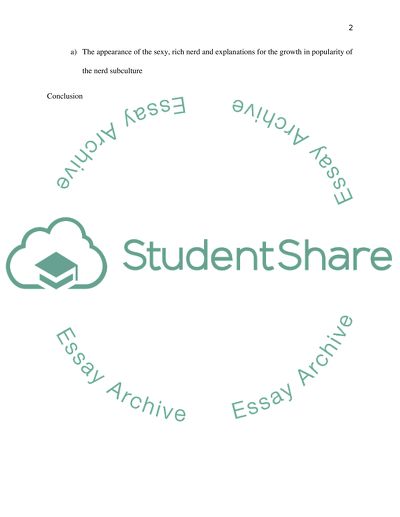Cite this document
(“The Subculture of Nerds and Their Rise to Stardom Research Paper”, n.d.)
Retrieved de https://studentshare.org/english/1448915-nerds-subculture-in-usa
Retrieved de https://studentshare.org/english/1448915-nerds-subculture-in-usa
(The Subculture of Nerds and Their Rise to Stardom Research Paper)
https://studentshare.org/english/1448915-nerds-subculture-in-usa.
https://studentshare.org/english/1448915-nerds-subculture-in-usa.
“The Subculture of Nerds and Their Rise to Stardom Research Paper”, n.d. https://studentshare.org/english/1448915-nerds-subculture-in-usa.


